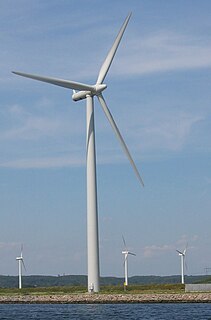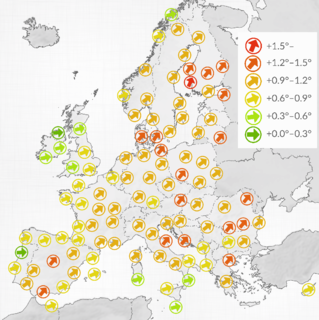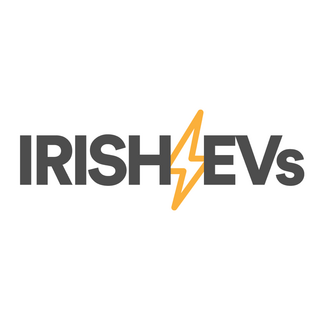Related Research Articles

Chevron Corporation is an American multinational energy corporation. The second-largest direct descendant of Standard Oil, and originally known as the Standard Oil Company of California, it is headquartered in San Ramon, California, and active in more than 180 countries. Chevron is engaged in every aspect of the oil and natural gas industries, including hydrocarbon exploration and production; refining, marketing and transport; chemicals manufacturing and sales; and power generation.

Greenwashing, also called "green sheen", is a form of advertising or marketing spin in which green PR and green marketing are deceptively used to persuade the public that an organization's products, aims and policies are environmentally friendly. Companies that intentionally take up greenwashing communication strategies often do so in order to distance themselves from the environmental lapses of themselves or their suppliers.
Carbon neutrality is a state of net-zero carbon dioxide emissions. This can be achieved by balancing emissions of carbon dioxide with its removal or by eliminating emissions from society. The term is used in the context of carbon dioxide-releasing processes associated with transportation, energy production, agriculture, and industry.
The American Petroleum Institute (API) is the largest U.S. trade association for the oil and natural gas industry. It claims to represent nearly 600 corporations involved in production, refinement, distribution, and many other aspects of the petroleum industry. Much of its work has been dedicated to the advancement of climate change denial and blocking of climate legislation to defend the interests of its constituent organizations.

A carbon offset is a reduction or removal of emissions of carbon dioxide or other greenhouse gases made in order to compensate for emissions made elsewhere. Offsets are measured in tonnes of carbon dioxide-equivalent (CO2e). One ton of carbon offset represents the reduction or removal of one ton of carbon dioxide or its equivalent in other greenhouse gases. One of the hidden dangers of climate change policy is unequal prices of carbon in the economy, which can cause economic collateral damage if production flows to regions or industries that have a lower price of carbon—unless carbon can be purchased from that area, which offsets effectively permit, equalizing the price.
Business action on climate change includes a range of activities relating to climate change, and to influencing political decisions on climate change-related regulation, such as the Kyoto Protocol. Major multinationals have played and to some extent continue to play a significant role in the politics of climate change, especially in the United States, through lobbying of government and funding of climate change deniers. Business also plays a key role in the mitigation of climate change, through decisions to invest in researching and implementing new energy technologies and energy efficiency measures.

Caltex is a petroleum brand name of Chevron Corporation used in 29 countries in the Asia-Pacific region, the Middle East, and Southern Africa.

Gary Gensler is an American government official and former investment banker serving as the chair of the U.S. Securities and Exchange Commission. Gensler previously led the Biden–Harris transition's Federal Reserve, Banking, and Securities Regulators agency review team. He is also a professor in the practice at the MIT Sloan School of Management.

Hauser & Wirth is a Swiss contemporary and modern art gallery.

Individual action on climate change can include personal choices in many areas, such as diet, travel, household energy use, consumption of goods and services, and family size. Individuals can also engage in local and political advocacy around issues of climate change. As of 2020, emissions budgets are uncertain but estimates of the annual average carbon footprint per person required to meet the target of limiting global warming to 2 degrees by 2100 are all below the world average of about 5 tonnes CO2-equivalent. And to meet 1.5 degrees 2.3 tonnes annual average is required by 2030. According to 66% of respondents to an EU climate survey, climate change will still be a severe concern by 2050.
Rising Tide UK is the United Kingdom part of the International Rising Tide Network, both of which were created in 2000 to carry out direct action against the root causes of climate change, and to work towards a fossil fuel free future. RTUK takes a no-compromise position and believes that only the complete dismantling of the fossil fuel industry and a shift to low consumption lifestyles will be sufficient to halt climate change.

Climate change in Europe has resulted in an increase in temperature of 1.9 °C (2019) in Europe compared to pre-industrial levels. Europe's climate is getting warmer due to anthropogenic activity. According to international climate experts, global temperature rise should not exceed 2 °C to prevent the most dangerous consequences of climate change; without reduction in greenhouse gas emissions, this could happen before 2050. Climate change has implications for all regions of Europe, with the extent and nature of impacts varying across the continent.

Bernardus Cornelis Adriana Margriet "Ben" van Beurden is a Dutch businessman who is the CEO of Shell plc. Van Beurden joined Shell in 1983, after graduating with a master's degree in Chemical Engineering from Delft University of Technology in the Netherlands.
Darren W. Woods is an American businessman, and the chief executive officer (CEO) and chairman of ExxonMobil since January 1, 2017.
The Oil and Gas Climate Initiative (OGCI), is an international industry-led organization which includes 12 member companies from the oil and gas industry: BP, Chevron, CNPC, Eni, Equinor, ExxonMobil, Occidental, Petrobras, Repsol, Saudi Aramco, Shell and TotalEnergies represent over "30% of global operated oil and gas production." It was established in 2014 and has a mandate to work together to "accelerate the reduction of greenhouse gas emissions" in full support of the Paris Agreement and its aims."

Ou Hongyi, also known by her English name Howey Ou, is a Chinese environmental activist who organises the school strike for climate in Guilin in southern China, calling for more action to limit greenhouse gas emissions by China and thus climate change.

The environmental policy of the Joe Biden administration includes a series of laws, regulations, and programs introduced by United States President Joe Biden since he took office in January 2021. Many of the actions taken by the Biden administration reversed the policies of his predecessor, Donald Trump.
Chevron Lubricants Lanka PLC is a manufacturer, distributor and marketer of Petroleum-based lubricants in Sri Lanka. The company is one of the constituents of the S&P Sri Lanka 20 Index and the Chevron Corporation holds a controlling stake (51.00%) of the company's stocks. The company offers engine oils, gear oils, transmission oils under the brand name Havoline while offering diesel vehicle engine oils, industrial lubricants, coolants, brake fluids under the brand name Delo. For the financial year 2019/20, Chevron Lubricants Lanka was ranked 67th in LMD 100, a list of listed companies by revenue in Sri Lanka.

IrishEVs is a consumer advice website focusing on electric vehicles, renewable energy and the climate crisis in Ireland. The site was founded by journalist Tom Spencer, who previously wrote for Fully Charged, and has covered a wide range of topics around the role of cars and transport in the context of climate change – with the transport sector accounting for 20% of Ireland's total greenhouse gas emissions.
Joe Lycett vs the Oil Giant is a 2021 documentary in which the comedian and presenter Joe Lycett protested against the oil company Royal Dutch Shell. It sees Lycett produce two adverts mocking the company and its CEO Ben van Beurden for greenwashing, and meet with experts and activists who are critical of the company. It aired on 24 October 2021 to mixed reviews.
References
- ↑ Olson, Bradley (2017-09-28). "Chevron Names Michael Wirth Chairman, CEO". Wall Street Journal . ISSN 0099-9660 . Retrieved 2020-04-02.
- 1 2 DiChristopher, Tom (2017-08-22). "Meet Michael Wirth, the man who could soon lead Chevron". CNBC . Retrieved 2020-04-02.
- ↑ "Chevron CEO: Mike Wirth Biography". Brooksy. 2020-01-22. Retrieved 2021-05-29.
- ↑ "Meet Mike Wirth, Chairman of the Board and CEO". Chevron Policy, Government and Public Affairs. Retrieved 2020-04-02.
- ↑ "Wirth takes the reins at Chevron". The West Australian . 2017-09-29. Retrieved 2020-04-02.
- ↑ "The dirty dozen: meet America's top climate villains". the Guardian. 2021-10-27. Retrieved 2022-05-08.
- ↑ "Chevron 'Greenwashing' Targeted in Complaint Filed With FTC". Bloomberg.com. 2021-03-16. Retrieved 2022-05-08.
- ↑ "Chevron CEO explains why the oil giant's lower-carbon investments look past wind and solar energy". CNBC. 2021-09-15. Retrieved 2022-07-11.
- ↑ "The dirty dozen: meet America's top climate villains". the Guardian. 2021-10-27. Retrieved 2022-10-19.